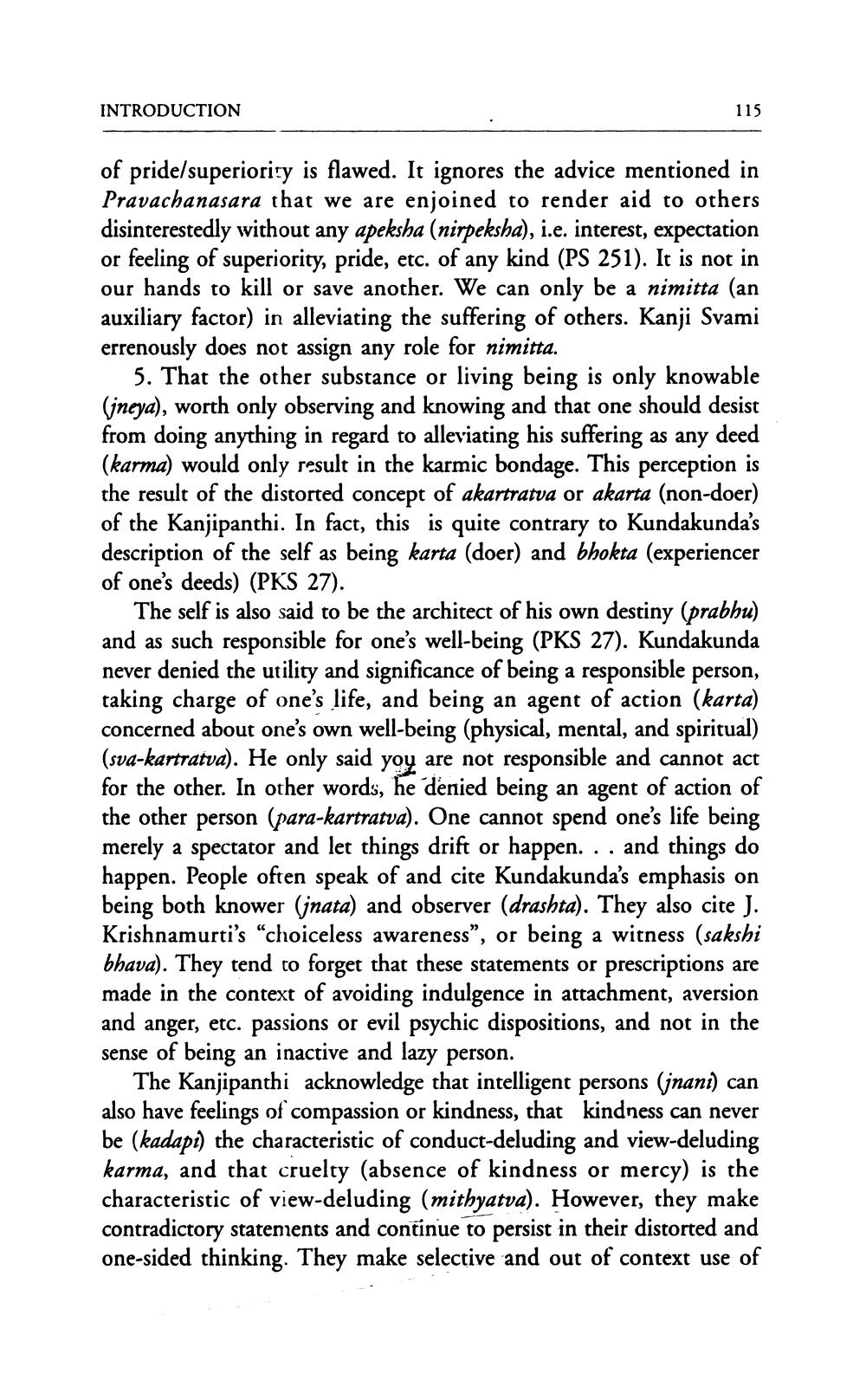________________
INTRODUCTION
115
of pride/superiority is flawed. It ignores the advice mentioned in Pravachanasara that we are enjoined to render aid to others disinterestedly without any apeksha (nirpeksha), i.e. interest, expectation or feeling of superiority, pride, etc. of any kind (PS 251). It is not in our hands to kill or save another. We can only be a nimitta (an auxiliary factor) in alleviating the suffering of others. Kanji Svami errenously does not assign any role for nimitta.
5. That the other substance or living being is only knowable (ineya), worth only observing and knowing and that one should desist from doing anything in regard to alleviating his suffering as any deed (karma) would only result in the karmic bondage. This perception is the result of the distorted concept of akartratva or akarta (non-doer) of the Kanjipanthi. In fact, this is quite contrary to Kundakunda's description of the self as being karta (doer) and bhokta (experiencer of one's deeds) (PKS 27).
The self is also said to be the architect of his own destiny (prabhu) and as such responsible for one's well-being (PKS 27). Kundakunda never denied the utility and significance of being a responsible person, taking charge of one's life, and being an agent of action (karta) concerned about one's own well-being (physical, mental, and spiritual) (sva-kartratva). He only said yoy are not responsible and cannot act for the other. In other words, he denied being an agent of action of the other person (para-kartratva). One cannot spend one's life being merely a spectator and let things drift or happen. . . and things do happen. People often speak of and cite Kundakunda's emphasis on being both knower (inata) and observer (drashta). They also cite J. Krishnamurti's “choiceless awareness”, or being a witness (sakshi bhava). They tend to forget that these statements or prescriptions are made in the context of avoiding indulgence in attachment, aversion and anger, etc. passions or evil psychic dispositions, and not in the sense of being an inactive and lazy person.
The Kanjipanthi acknowledge that intelligent persons (jnani) can also have feelings of compassion or kindness, that kindness can never be (kadapi) the characteristic of conduct-deluding and view-deluding karma, and that cruelty (absence of kindness or mercy) is the characteristic of view-deluding (mithyatva). However, they make contradictory statements and continue to persist in their distorted and one-sided thinking. They make selective and out of context use of




